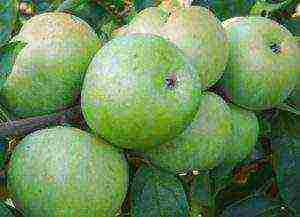Content
It doesn't matter if you live in a big house or a modest apartment, medicinal plants can be grown all year round. It is enough to set aside space for several pots, water the plants regularly and provide them with natural sunlight. Aloe vera, mint, chamomile ... will become your natural helpers in maintaining the health of the whole family. In addition, children really enjoy watching green pets grow.
In our article we will tell you which medicinal plants you can grow on your own windowsill and what useful properties they have.
Useful herbs and plants
Just imagine, you will have a small vegetable garden at your disposal all year round, where you can collect the most useful plants and use them at any convenient moment! Colds, abdominal pain, a wound that heals for a long time ... - these and other problems will be solved by your green helpers. Nature is wise and wonderful, it gives us medicine for almost all diseases, we just have to accept this generous gift.
So, we have selected 5 plants that have the maximum health benefits, and you can easily grow them at home.
1. Aloe vera
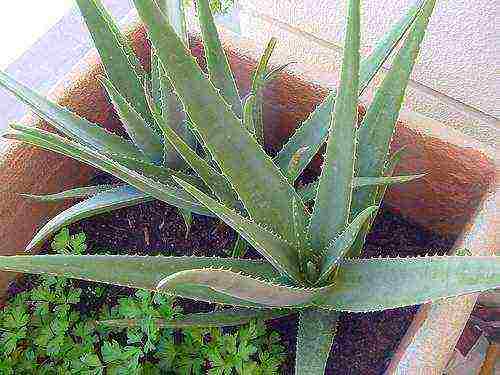
Aloe vera has a fantastic array of health benefits. Its thick leaves contain water, enzymes and amino acids that can quickly regenerate skin and heal wounds. Aloe Healing Gel is easy to extract by simply removing the pulp from the leaves. It is effectively used for skin care, weight loss, digestion and intestinal problems, etc.
Aloe vera does not require frequent watering and regular maintenance. Just put it on the sunny side, in the summer the plant can be taken out to the balcony. When planting, it is best to use a clay pot rather than a plastic one. Fill it with soil with 50% peat and be sure not to forget about the drainage. Aloe tolerates direct sunlight well, in winter it is better to protect the plant from cold and draft.
2. Mint
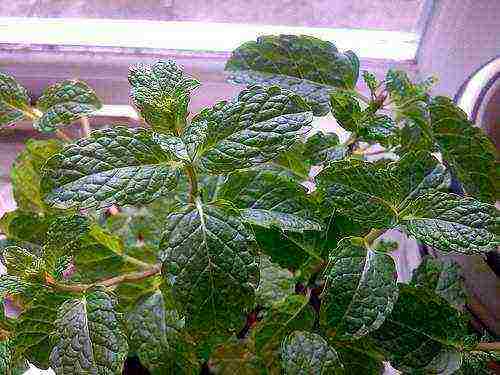
Mint ideal for treating stomach pain, soothes and relaxes, it can be combined with other herbs to make medicinal teas and infusions. This is a great home remedy that you can easily grow yourself in a pot or garden bed. Add it to desserts and hot dishes.
It is very easy to grow mint, it will delight you with fresh aroma and herbs all year round. Such a plant is unpretentious and scares off ants, midges and other insects. Prepare a clay pot for the mint, add drainage to it, and then mix equal amounts of earth and peat. Peppermint prefers partial shade, so do not expose it to direct sunlight.
3. Sage
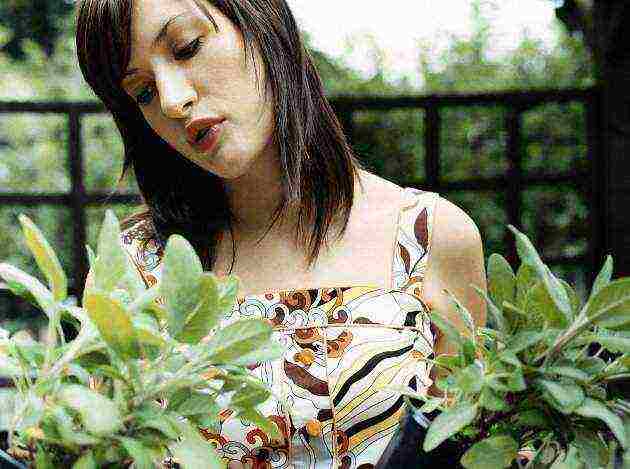
Do you know what sage means in translation? "Stay in good health"! And it's not just words, sage - an excellent ingredient for infusions, broths, teas and hot dishes. It soothes, improves digestion, relieves inflammation and headaches.
Clay soil with good drainage is suitable for growing sage. It will need a lot of sun, so place the plant on a sunny side or balcony.
4. Parsley
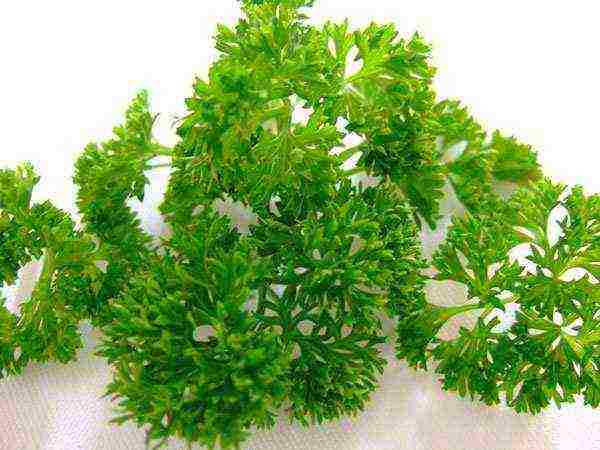
Parsley has excellent detoxifying properties, it cleanses the kidneys, strengthens the immune system, and eliminates bad breath. It is also a great seasoning for salads, hot dishes and vegetable cocktails.Parsley contains a lot of iron, so it is recommended to consume at least a spoonful of this plant every day.
How to grow parsley on your windowsill? So, the main condition is that this plant needs at least 5 hours of sun per day, then it can be removed in the shade. Prepare a small pot or box with drainage, soil, and peat. Parsley is grown from seed, so it will take a little time for the first shoots to appear. Remember to water the ground every day. As soon as the parsley rises, it will gain strength and grow every day.
Remember that home grown parsley is more flavorful and spicy than what we buy in the store. And, of course, more useful.
5. Chamomile
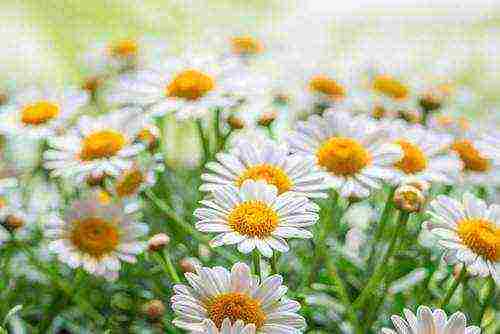
chamomile Is one of the medicinal plants to have on hand. It has a calming effect, improves sleep, relieves fatigue and regulates the cardiovascular system.
Plant your chamomile in warm weather in summer. She will need land with a little sand and good drainage. Place the plant in the part of the house where it will receive diffused light - the chamomile will die in direct sunlight.
To prepare infusions and decoctions of chamomile, you need its inflorescences, so wait until the flowers fully open and carefully cut them off so as not to damage the stem.
So, we told you about the 5 most useful medicinal plants that can be grown at home with children. Watch them grow and enjoy the health benefits!
Generally, medicinal plants require about 4-5 hours of sunshine per day during cultivation. You can place them on the windowsill or on the table by the window. You can also use artificial lighting and place the plants under fluorescent lights.
Therefore, we are starting to create our own green pharmacy.
1. Mint
Mint grows in humid, shaded areas as well as in sunny locations. It needs to be watered well and use a weak liquid fertilizer. It is best to grow mint in large pots because it grows vigorously.
Medicinal properties: Mint has antioxidant, expectorant (helps to remove mucus from the respiratory tract), diaphoretic (causes sweating), digestive, antiseptic and anti-inflammatory properties. It is also rich in vitamins A and C and contains manganese and iron.
Uses: Peppermint can be very helpful in treating indigestion, muscle pain, abdominal pain, heartburn, chest pain, fever, headaches, and bad breath.
2. Parsley
You can grow this herb outdoors in the ground or in large pots.
Medicinal properties: Parsley is a good source of essential oils, flavonoids, and antioxidants. It also contains many vitamins C, B12, K and A and folic acid.
Uses: Parsley is used to treat urinary tract infections, kidney stones, constipation, jaundice, gas, colic, diabetes, cough, asthma, osteoarthritis and high blood pressure. Parsley is also used as an aphrodisiac and breath freshener.
3. Basil
Medicinal properties: Basil has antioxidant, antiseptic, anti-inflammatory and antibacterial properties. It also contains vitamins A, C, and K, manganese, copper, calcium, iron, magnesium, and omega-3 fatty acids.
Application: Basil can be used to treat flatulence, lack of appetite, gas, nausea, cuts, scratches, headaches, coughs, acne.
4. Dill
This herb grows best in direct sunlight and needs to be watered frequently. Avoid cold, damp locations.
Medicinal properties: Dill is used in many traditional medicines due to its anti-inflammatory, antiseptic, antispasmodic, disinfectant and sedative properties. It is also a good source of vitamins A, C and B6, fiber, amino acids, copper, potassium, calcium, manganese, iron and magnesium.
Application: Dill is used to treat intestinal gas, diarrhea, dysentery, menstrual cramps, fever, colds, coughs, bronchitis, headaches, hemorrhoids, diseases of the liver, gall bladder and urinary tract. It also boosts immunity and helps with insomnia.
5. Oregano / oregano
Many spiced Italian, Mexican and Spanish dishes are made from oregano. You can grow grass in containers. It requires a lot of sun and well-drained soil.
Medicinal properties: Oregano has antioxidant, antibacterial, antimicrobial, anti-inflammatory, diuretic, diaphoretic, expectorant and mild tonic properties. Also rich in vitamins A, C, E and K, fiber, iron, manganese, calcium, omega-3 fatty acids, niacin, zinc and magnesium.
Uses: Oregano can be used to treat colds, muscle aches, whites in the throat, fever, vomiting, acne, dandruff, bronchitis, asthma, toothache, bloating, headache, fatigue, menstrual cramps, and loss of appetite.
6. Melissa officinalis
This herb grows well in a moist but well-drained runth. Melissa needs at least six years of light a day.
Medicinal properties: Melissa is a natural antioxidant with antiviral, astringent, antimicrobial, antihistamine and antispasmodic properties. The leaves contain rosemary, caffeic, protocatechuic acid, phenolic compounds and flavonoids.
Application: Melissa is very useful in the treatment of herpes. It is used for stomach gas, abdominal pain, migraine, toothache, insect bites, headache, fever, colds, coughs, menstrual cramps.
7. Thyme
You can easily grow it in dry, well-drained light soil with enough sunlight.
Medicinal properties: Thyme is a powerful antioxidant, antiseptic and has antibacterial and expectorant properties. It is also a great source of vitamins C and A, iron, manganese, copper, and fiber.
Uses: Thyme can be used to treat coughs, constipation, indigestion, gas, arthritis, sore throat, and bronchitis.
8. Lavender
You can easily grow it in a small pot.
Medicinal properties: Lavender is used in soaps, shampoos, creams, and other cosmetic products. In addition, it has anti-inflammatory, antiseptic and mild antidepressant effects.
Application: Lavender is useful for indigestion, flatulence, cuts, ulcers, bad breath, migraines, toothaches, nausea. Adding dried lavender to your bath helps relieve stress and insomnia.
9. Sage
You can grow it in well-drained, fertile soil with enough sunlight.
Medicinal properties: Sage is a natural stimulant, antibiotic with astringent and tonic effect. It also contains anti-hypertensive, anti-diabetic, anti-inflammatory and antimicrobial compounds.
Application: The herb is used for loss of appetite, gas, abdominal pain, heartburn, depression, herpes, gum disease (gingivitis), painful periods, asthma.
10. Rosemary
Rosemary grows best in well-drained sandy or gravel soil. This herb loves to bathe in sunlight.
Medicinal properties: Rosemary has antioxidant and anti-inflammatory compounds, contains phytonutrients, essential fatty acids, has anti-allergenic, diaphoretic and stimulating effects. It is also a good source of iron, calcium and vitamin B6.
Application: This fragrant herb is often recommended in the treatment of headaches, colds, depression, gout, rheumatism, premature hair loss, dandruff, muscle pain.
Enjoy the spicy scent while you prepare your herbal teas.
Use about one tablespoon of chopped fresh herb for 1 cup of boiling water. Cover and let sit for 5 to 10 minutes before drinking your tea. You can mix plants that are present in your green medicine cabinet. Drink one cup 2 or 3 times a day.
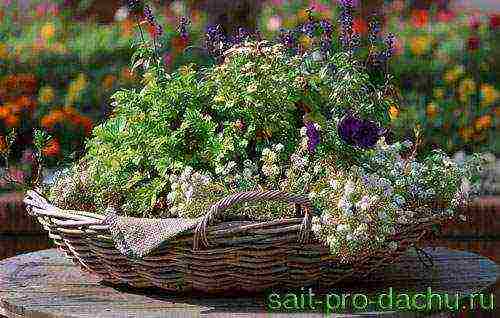
Having medicinal plants at home is very convenient and useful, and most importantly, simple. There are several ways to grow medicinal and tea herbs at home on the windowsill - individually or together, in a basket, pot or cup.
For example, we offer you this option: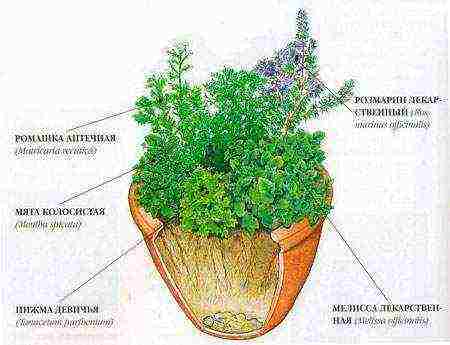
Medicines in a pot
To grow medicinal plants at home on the windowsill, you will need the following materials:
1. Ceramic pot with a diameter of 50 cm.
2. Flower soil and compost
3. Drainage
4. Waterproof non-woven fabric
5. Complex fertilizers and bark mulch
For planting, you will need pharmaceutical chamomile, maiden tansy, lemon balm, spearmint, medicinal rosemary. We distribute these plants in a certain way in the pot. The location of medicinal herbs will be determined by their characteristics.
pharmaceutical camomile planted in the middle of the pot. This erect medicinal plant blooms between May and August. Its dried flowers are used to brew medicinal tea.
Medicinal rosemary planted at the bottom right of the chamomile. It is evergreen and thermophilic, does not tolerate frost and therefore should also spend the winter in the house. Blooms from March to June.
Melissa officinalis this vigorous plant can grow up to 1 m in height. It needs pruning, otherwise lemon balm will outgrow its neighbors and may drown them out. It is used for making tea, desserts, drinks, and also as an addition when decorating bouquets.
Maiden tansy - we plant to the right of the chamomile. Its flowers are similar to chamomile and are used together with the leaves to brew tea, which helps with migraines.
Spearmint planted at the top left of the chamomile. It is used to make sauces and tea. When brewing tea, take 3-4 mint shoots, grind and pour boiling water. After half an hour, strain the tea through cheesecloth or a strainer, add crushed ice and sugar or honey to taste.
How to grow medicinal plants in a pot at home

Pour a drainage layer into the pot. Then we mix the soil with compost (3: 1) and a handful of fertilizers. We fill the mixed soil into a pot, not reaching 5 cm to the edge. Now you can start planting plants. We plant chamomile first, then all the others. After the planting of medicinal plants is over, the soil must be tamped and mulched.
Here are some more ideas for inspiration:
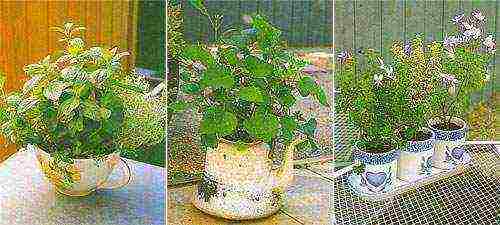
Lemon-smelling thyme, spearmint and peppermint, pelargonium are suitable for a home tea garden. Plant the first three in one large cup or other kitchen utensil (preferably tea-themed, such as a kettle or teapot), and this bouquet will fill your place of stay with a light and pleasant lemon scent. Pelargonium can be planted in several separate cups, preferably identical. These flowers drain the pleasant sweet scent.
Now you can safely replenish your home flora with a couple of useful specimens of medicinal plants.
Be healthy!
At home on the windowsill, you can grow a whole garden of useful herbs, even if you live in an ordinary city apartment. Here are 10 of the best herbs to grow at home.
The herbs, which we will discuss below, will provide health benefits and add a unique flavor and aroma to your meals.
And remember, plants lose half of their nutritional value within thirty minutes of being harvested, so growing your own herbs at home is a great way to get the most out of them.
Rosemary
This beautifully fragrant herb contains compounds that have been shown to fight cancer cells.In addition, the smell of rosemary, according to scientists at the University of Northumbria in the UK, helps to improve memory. Rosemary grows best in bright sunlight and frequent watering.
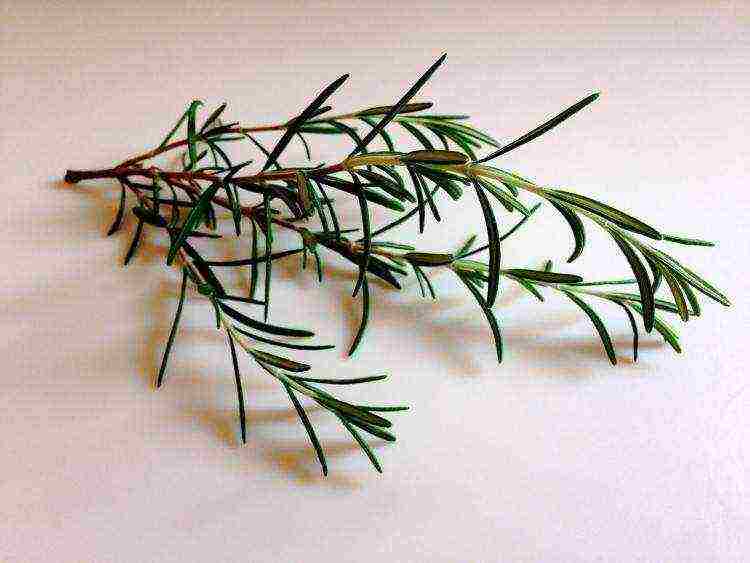
Thyme
Thyme has long been used as a herbal medicine, in particular for the treatment of bronchitis, as it has strong antiseptic properties due to the thymol it contains. Thyme contains practically no calories, but gives dishes a unique flavor.
And thyme flowers make this plant an attractive home decoration. Thyme grows well in abundant sunshine, but it can thrive quite well with incomplete sunshine.
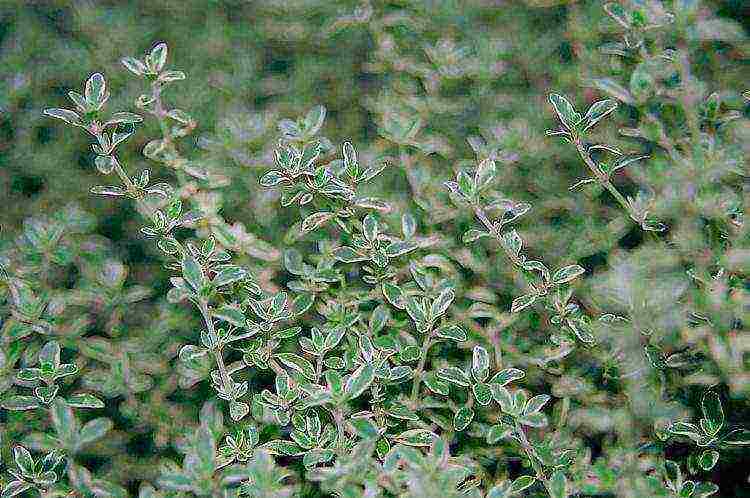
Lavender
Its aroma soothes and helps to fall asleep. Lavender contains antioxidants polyphenols that help fight bloating.
This plant thrives best outdoors, in the sun (at least 8 hours of sunshine per day). If you choose to grow lavender indoors, make sure there are holes in the bottom of the growing container for water to escape.
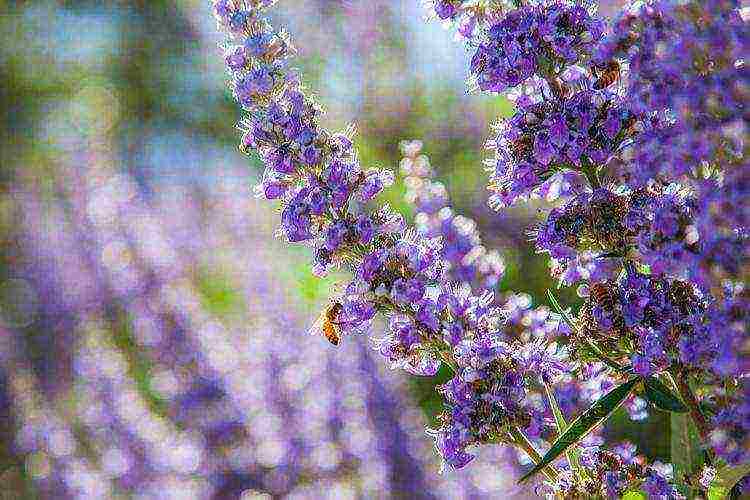
Basil
Basil is a great remedy for calming the nerves. It is a good source of fiber and helps cleanse the liver. It has a beneficial effect on the condition of the skin due to its powerful anti-inflammatory properties.
Basil grows easily, both indoors and outdoors. It does not require special care, you can water the basil every other day.
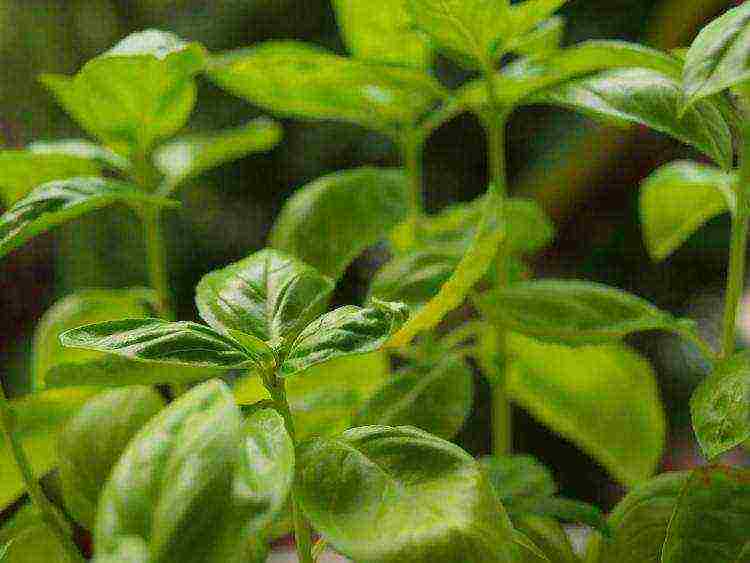
Parsley
Parsley contains vitamins A and C, only one tablespoon of this herb contains more than half of the recommended daily intake of vitamin K, as well as nutrients important for blood health.
Parsley is easy to grow - it doesn't require a lot of sunlight or special care. Just make sure the soil isn't too dry. If you cannot provide a fairly comfortable environment for her, she will grow more slowly.
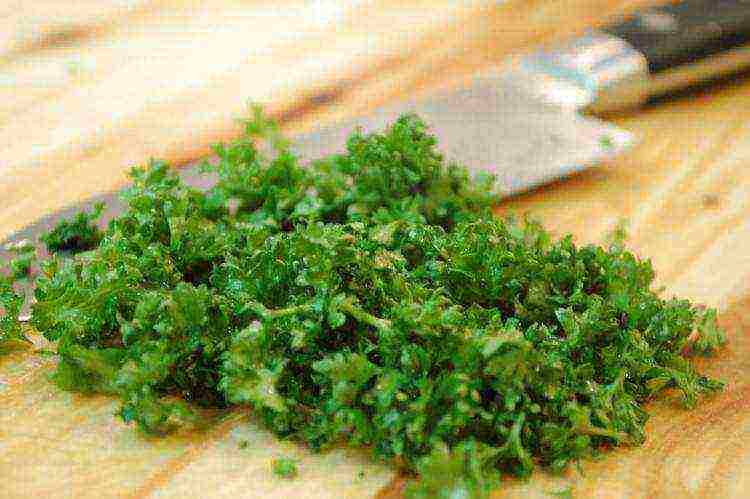
Sage
Sage is found in many cosmetics because it has antiseptic properties and contains antioxidants that can help fight aging.
In addition, sage is a natural remedy for anxiety and fatigue, and scientists say it is effective in preserving memory. Sage grows well in relatively high humidity. Just water it every day and give it enough light.
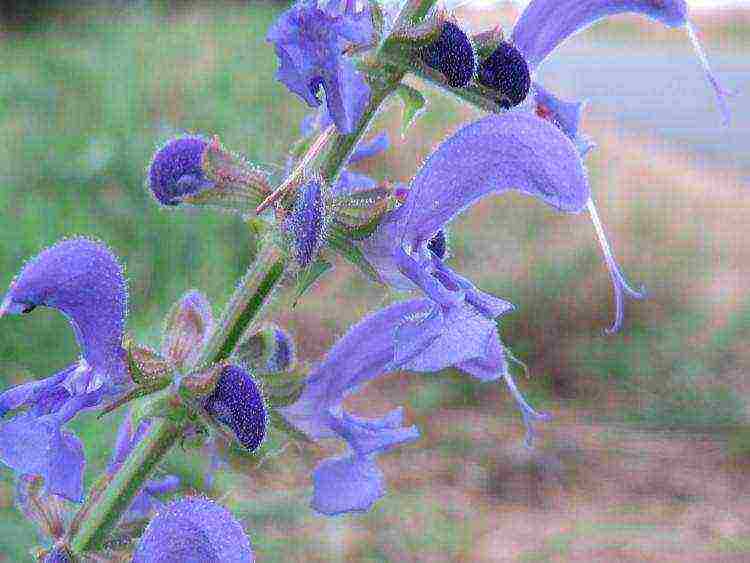
Coriander
A favorite herb in Mexican and Asian cuisines. A source of plant fibers and iron, promotes the removal of heavy metals from the body. Due to the long taproot, coriander needs a deep container with soil - then it will bloom well.
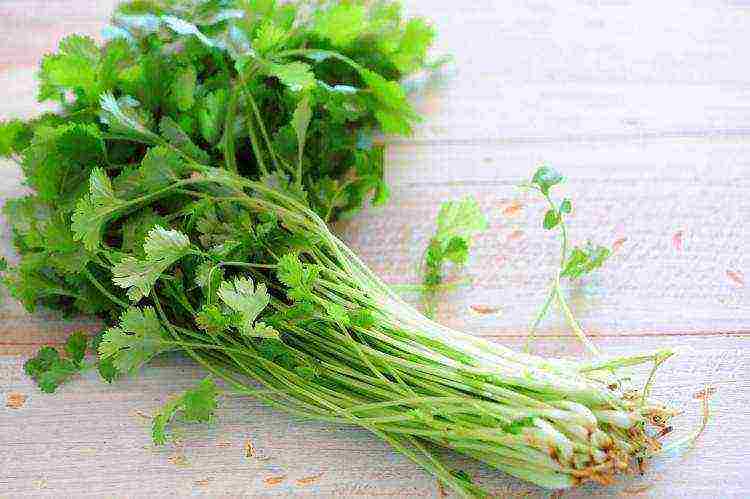
Chives
Helps to strengthen the immune system. According to research, regular consumption of chives is a good prevention of certain types of cancer, including cancer of the prostate, stomach and breast.
It grows very quickly. It can be grown indoors with little light. Chives grows up to 18 cm.
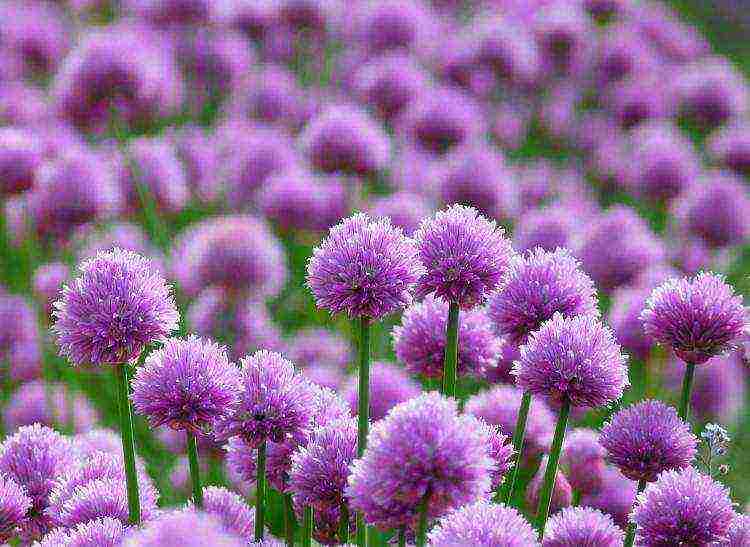
Dill
An excellent source of antioxidants. Some scientists call dill an excellent remedy for hiccups. The next time you hiccup, boil a teaspoon of chopped dill in boiling water, then strain the herb and sip it slowly. Should pass.
Dill requires a lot of sun and grows best in deep, loose soil, so it is best planted in a large pot. Watering dill is enough 1-3 times a week, according to the situation.
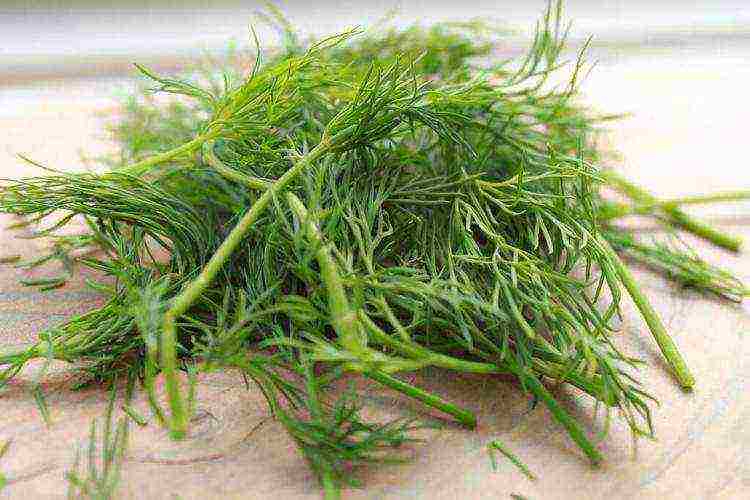
Mint
Mint is rich in vitamin A - two tablespoons of this plant contains more than half of the recommended daily intake of this substance. In addition, mint helps relieve nausea, headaches, respiratory distress, asthma, and acne.
Recent research has shown that peppermint essential oils have a positive effect on performance, blood pressure. It grows quickly and requires a lot of space. You can grow at home, but it is better to do it outdoors.
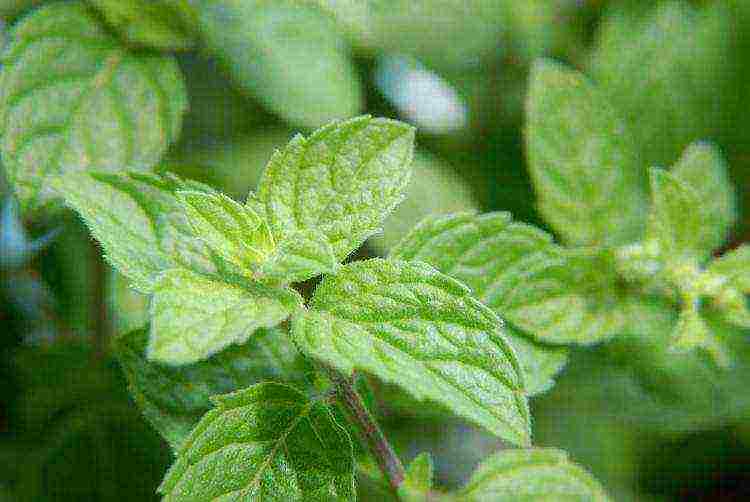
How to start growing your garden
Very simple.First of all, get the right size trays, seeds or plants directly, and buy organic growing mixtures if necessary.


